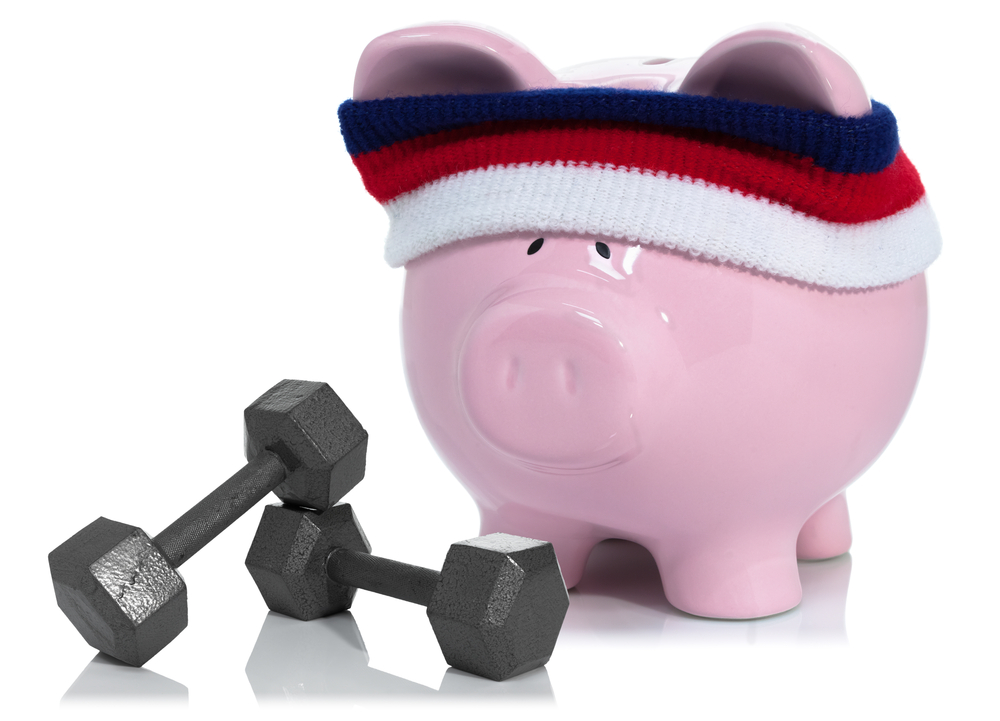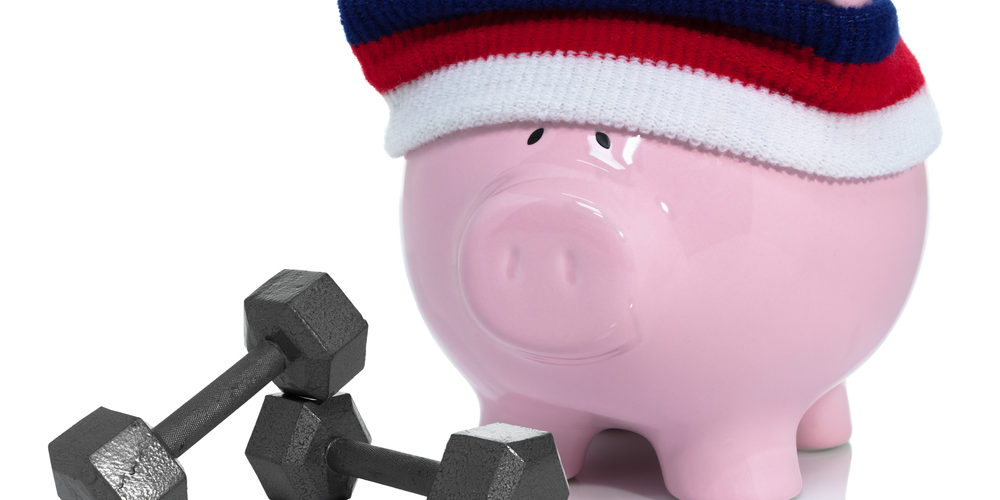
Keep it Super Simple.
The number one way to stay in physical shape or money shape is to keep it super simple.
Step 1 – Evaluate Your Money Fitness
“Consult with a physician before starting any exercise routine.” In this case, you’re the doctor. There are three key numbers you need to know.
1. Monthly Take-Home Pay
Not just your hourly rate or annual salary, but your monthly take home pay.
2. Total Debts
All of them: student loans, car loans, mortgage total, personal loans, credit card balances. List them smallest to largest.
3. Assets
List how much money you have in checking, savings, 401Ks, 457s, Roth IRAs, Rollover IRAs, etc. Then list the current value of your home or other major assets.
Net Worth
Now subtract your debts from your assets and that is your net worth. The number will be positive if you have more assets than debt, negative if you have more debts than assets. Do this calculation at the same time every year as your “annual check up.” Your income is used later for your cash flow planning.
Insurance
This is a basic that protects against injury. Make sure you have health insurance, adequate car, home or renters’ insurance, and term (15-20 year) life insurance on you and your spouse if you or others depend on the income or contribution.
Adequate insurance is a buffer between you and total financial devastation. Don’t think you’re saving money by skipping this crucial step to a healthy financial plan.
Step 2 – Money Fitness Plan
Identify your money’s weaknesses
- Income. If your income is too low, getting your income up may be a first priority. “Apply for new jobs.” “Ask for a raise.” “Pick up a side gig.”
- Starter Emergency Fund. Do you have $1000 in an accessible savings account to address emergencies? “Sell stuff on Ebay.” “Set aside tax return as an emergency fund.” “Take a temporary second job.”
- Debt. If you have any debt besides your home, I recommend making that a high priority. There is no motivator more suited to this task than the teachings of Dave Ramsey. He has a radio show, a podcast and a book, Total Money Makeover. If you have debt, read this first. It is difficult to get true financial traction while paying interest, instead of earning interest. “Check out Ramsey’s book at library.”
- Retirement. If you have a good income and no debt, are you maxing out all your retirement options at work or on your own? “Increase my % contribution today by 2%.”
- Emergency Fund. If you have a good income and no debt, do you have a 6-12 month emergency fund to cover basic expenses if you were to lose your job or become ill? “Start taking any unexpected income, bonuses, or gifts and setting it aside in an emergency fund.”
- Adequate Insurance. Check all your insurances and call to get quotes if you’re underinsured or not insured against the basics: car, health, home and life. Life insurance may not be necessary if you’re single and have no dependents. “Call my agent and review my coverages and deductibles.”
Make a Plan Based on Where I Am
Just like how we know what habits we need to change or incorporate to get into better shape, based on the six criteria above, we can start formulating how we’ll change our money trajectory starting now.
Budget
The most effective tool in planning is a good old-fashioned budget. But it’s not boring. A budget is awesome. It makes you the boss of your money. You tell your money where it’s going at the beginning of the month. This is where your take home pay comes in.
Take a piece of paper and put your income at the top. If it’s irregular, put an amount that is minimally predictable. Then list all your expenses until you have spent every dollar of your take home pay. The way net worth shows you how your annual, overall health is, a monthly budget shows you how you’re doing on a micro scale of cash in, cash out. Spend more than you make and you’re back in the debt zone.
Live simply and below your means to keep money flowing well. Increase your savings as your income increases, rather than just increasing the amount of stuff you buy or how often you eat out.
Gazelle Intense About Getting Out of Debt
If you become a Dave Ramsey fan, you’ll quickly learn that laser focus on clearing debt from your life garners amazing traction. Hundreds of people call into the show every year to do their “Debt Free Scream.” Staggering amounts of debt are paid off in 12-24 months with every range of income.
You’ll hear tag lines like “Rice and beans, beans and rice.” No restaurants, no vacations. “Live like no one else so you can live like no one else.”
Do this program. It will be the best gift you give yourself. Your financial future will thank you.
Rule of 72
Compound interest is the 8th wonder of the world, according to Einstein. A penny that doubles every day for 30 days will by over $10.7 million at the end of the month. Take any interest rate and divide it into 72. That’s how long it will take your money to double. So at 7% interest, money will double in 10.28 years. At 10% interest (long term S&P 500 stock market average), your money will double every 7.2 years.
Take advantage of time. Start investing early and often into retirement accounts you never touch until you are retirement age. And don’t borrow from retirement funds. Ever! The opportunity cost of is too high (compounding, time, risk of losing job before repayment then paying penalties, etc.).
Step 3 – Just Do It
Analyze where you are, make a plan, then start doing it. Fight the demons that first plagued us when we took on a new exercise program. “I’m too tired.” “I’m sore.” “It’s too hard.” “I’ll start tomorrow.”
Money fitness is just like physical fitness. The more we do it, the more of a habit it becomes, the more our mindset changes, the easier it gets. Why? Because we see results! Leaner muscle tone, a faster time, greater lung capacity, increased flexibility.
Signs that we are getting money results:
- We’ve stopped using credit cards and incurring new debt.
- We’re throwing extra money at smaller debts and watching them disappear to $0.
- We cleaned out our closet and sold some stuff to create our first emergency fund.
- We stopped going without health insurance.
- We use cash for groceries and weekly errands. When our allotment is gone, it’s gone until next “allowance day.”
- We love ourselves too much to keep our head in the sand about our money health.
- We started a side gig to generate extra funds to put into a Roth IRA.
- We increased our 401K percentage and checked to make sure we’re invested wisely within our employer’s options. (Check fund tickers with morningstar.com for ratings, fees, and asset class.)
- Next year when I do my net worth analysis, there will be a $28,000 swing, from $20,000 negative, to $8,000 positive net worth!
Remember, you d’a boss. Be wise and consistent. Half the battle is just paying attention. Be generous, money is meant to flow. But don’t be afraid to be honest, and let your friends know that you’re on a mission to improve your financial health. They may want to join you!
A little sacrifice now pays big dividends. I write only what I know, and I know this to be true. I’m benefitting from choices I made and habits I started years ago. I have nothing to prove by living beyond my means. I have nice things and I value experiences. I pay tithing to my local church. I try not to be wasteful or spend money on worthless things. What that means is different for everybody.
You are your best financial security. Love yourself enough to pay attention and know that your future self will thank you. Keep it simple!
xo, tricia







